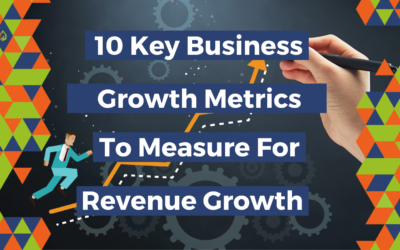In today’s fast-paced digital landscape, small businesses are constantly seeking innovative ways to stay competitive and grow and using AI for small business growth is something you need to take seriously. Artificial Intelligence (AI) is no longer reserved for tech giants; it’s becoming increasingly accessible and affordable for small businesses, some are already leveraging it to grow and others are getting left behind. In this guide, we’ll explore how small businesses can harness the potential of AI to boost efficiency, enhance customer experiences, and drive growth.
Understanding Artificial Intelligence
Before diving into the practical aspects, let’s start by understanding what AI is. Artificial Intelligence refers to the simulation of human intelligence in machines, allowing them to perform tasks that typically require human intelligence. These tasks include learning, reasoning, problem-solving, speech recognition, and more. AI systems can be trained to analyze data, make predictions, and automate processes, making them invaluable for small businesses.
How AI Benefits Small Businesses
- Improved Efficiency: Small businesses often have limited resources, and AI can help maximize productivity. AI-powered tools can automate repetitive tasks, such as data entry, inventory management, and customer support inquiries, freeing up time for employees to focus on strategic initiatives.
- Data Analysis and Insights: AI algorithms can analyze vast amounts of data quickly and accurately. This capability is particularly useful for small businesses to gain insights into customer behavior, market trends, and operational efficiency. These insights can inform better decision-making and more effective marketing strategies.
- Enhanced Customer Experiences: AI can personalize interactions with customers. Chatbots and virtual assistants can provide immediate responses to customer inquiries, improving customer service. Additionally, AI can analyze customer data to offer personalized product recommendations and content, increasing customer satisfaction and retention.
- Cost Savings: By automating tasks and optimizing operations, small businesses can reduce costs. AI-driven predictive maintenance, for example, can help prevent equipment breakdowns, reducing maintenance expenses. Similarly, AI can optimize supply chain management, minimizing excess inventory costs.
- Competitive Advantage: Small businesses that adopt AI early can gain a competitive edge. AI can help businesses respond to market changes more swiftly, anticipate customer needs, and adapt to trends. This agility can be a significant advantage in a rapidly evolving business environment.

Implementing AI in Small Businesses
Now that we’ve highlighted the benefits of AI For Small Business Growth , let’s delve into the practical steps small businesses can take to implement AI for growth:
- Define Your Objectives: Start by identifying the specific areas where AI can bring the most significant impact to your business. Whether it’s automating tasks, improving customer service, or enhancing data analytics, having clear objectives will guide your AI adoption strategy.
- Select the Right AI Tools: There is a wide range of AI tools and platforms available, so choose ones that align with your business goals. For instance, if you want to improve customer support, consider implementing a chatbot or virtual assistant. If data analysis is your priority, explore AI-driven analytics tools.
- Data Collection and Quality: AI relies heavily on data. Ensure that you have a robust data collection and storage infrastructure in place. The quality of your data is crucial, so clean and organize your data to ensure accuracy and relevance.
- Training and Integration: Invest time in training your team on how to use AI tools effectively. Integration with your existing systems and workflows is key to seamless adoption. Make sure that your AI solutions work harmoniously with your existing technology stack.
- Monitor and Refine: AI is not a one-time implementation; it requires continuous monitoring and refinement. Regularly review the performance of your AI systems, gather feedback from customers and employees, and make necessary adjustments to improve results.
- Security and Compliance: With the use of AI comes the responsibility to protect customer data and ensure compliance with privacy regulations. Implement robust security measures and stay informed about data protection laws relevant to your industry.
- Scaling Up: As your business grows, consider scaling up your AI initiatives. You can explore more advanced AI applications or expand the use of existing tools to new areas of your business.
Real-World Examples of AI For Small Business Growth
To illustrate the impact of AI on small business growth, let’s look at a few real-world examples:
- E-commerce: A small online clothing store implemented AI-driven product recommendations. By analyzing customer behavior and purchase history, they offered personalized product suggestions, leading to a 20% increase in sales.
- Healthcare: A small medical clinic integrated AI-powered chatbots for appointment scheduling and patient inquiries. This not only improved patient satisfaction but also reduced administrative workload by 30%, allowing the clinic to serve more patients efficiently.
- Manufacturing: A small manufacturing company adopted predictive maintenance using AI algorithms. This reduced unplanned downtime by 40% and lowered maintenance costs, contributing to higher production output and profitability.
Ignite Growth Takeaways
Artificial Intelligence is no longer a luxury reserved for large corporations. Small businesses can leverage AI to improve efficiency, enhance customer experiences, reduce costs, and gain a competitive edge in today’s dynamic business landscape. By defining clear objectives, selecting the right AI tools, and focusing on data quality, small businesses can harness the power of AI for sustainable growth. As technology continues to advance, embracing AI is not just an option; it’s a necessity for small businesses looking to thrive in the digital age. So, seize the opportunity and embark on your AI journey to propel your small business to new heights of success.






0 Comments